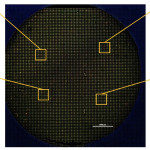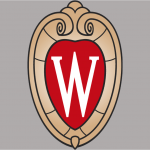An update on next steps following approval of the Universities of Wisconsin pay plan.
This week, the state legislature’s Joint Committee on Employment Relations (JCOER) approved the pay plan for Universities of Wisconsin employees (including those at the University of Wisconsin–Madison) that was included in the state budget signed into law this past summer.
The committee’s vote followed the UW System Board of Regents endorsement last week of a compromise package between the Universities of Wisconsin and state legislative leaders. A number of additional provisions in the compromise agreement will require legislative and administrative action over the next weeks and months.
Below is a brief summary of the agreement and some next steps.
Pay plan status
The agreement required action by JCOER on the UW pay plan before December 31, 2023, and the implementation of the pay plan will now proceed as quickly as possible. Eligible employees will see a 4% wage increase and back pay to July 2, 2023, paid in a lump sum, on their January 11 earnings statement. The next step for building trades employees is approval of the collective bargaining agreement by the full state legislature and governor.
More information can be found in this FAQ.
Workforce development funding for Universities of Wisconsin
The Legislature’s Joint Committee on Finance is to approve a $32 million workforce development proposal for the Universities of Wisconsin; this funding was initially withheld by legislators in the recent state budget process. The committee must approve the proposal before the end of the legislative session in February 2024.
The funding would be used to educate more engineers, nurses, data scientists, business and finance leaders, and other high-demand professionals. UW–Madison would receive approximately $2.5 million annually for computer science.
Building projects
Legislative action is required to enumerate the capital projects in the agreement, including the UW–Madison engineering building project; renovation of Kronshage, Jorns, and Humphrey Residence Halls; and several utility and demolition projects across Universities of Wisconsin campuses.
Enumeration means these projects will be included in the authorized state building program and capital budget for the current biennium. The legislature and governor will need to address the engineering building and other capital projects in specific legislation, which is also required to be passed by the end of the legislative session. More details will be shared as they become available.
Student success
The agreement includes a cap, or limit, on certain administrative positions across the Universities of Wisconsin for three years. This does not include faculty, instructional, and other staff who spend at least 75% of their time in student-facing roles, nor does it apply to research positions funded at 75% or more by gifts, grants or contracts.
The agreement also calls for the Universities of Wisconsin to cap the aggregate number of positions that are in certain core diversity, equity, and inclusion (DEI) functions. Importantly, no positions are being cut and no employees will lose their jobs. About 43 positions across the Universities of Wisconsin will be restructured to focus on academic and student success. It is not yet known how many UW–Madison positions will be included.
Other elements included in the agreement
The agreement calls for legislative action to approve Assembly Bill 140 related to Minnesota-Wisconsin tuition reciprocity so that all tuition dollars from Minnesota students go to Universities of Wisconsin campuses instead of some going to the state’s general fund.
Legislators will also act on a bill requiring UW–Madison to accept Wisconsin applicants who graduate in the top 5% of their high school class and other Universities of Wisconsin schools to accept the top 10%.
The Universities of Wisconsin has also committed to:
eliminating requirements for diversity statements in UW System-designed admissions applications; developing a module regarding freedom of expression for entering undergraduate students; initiating a faculty recruitment program at UW–Madison for those who have demonstrated the ability to mentor underserved students (in lieu of renewing the Target of Opportunity “TOP” program); and seeking philanthropic support to create an endowed chair focused on conservative political thought or a similar field at UW-Madison.Next steps
The compromise agreement requires each party to meet all obligations. Information will continue to be provided as it becomes available.













